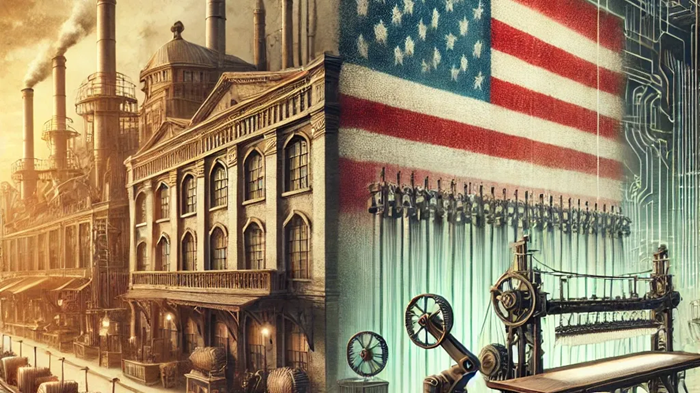
Robert Antoshak, a consultant for the global apparel industry presents a mixed outlook for the US apparel market, acknowledging recent improvements while highlighting ongoing concerns. In a United States Fashion Industry Association (USFIA) webinar featuring him, Antoshak highlights signs of recovery while acknowledging ongoing challenges.
Recovery signs
Antoshak outlines several tell tale signs of recovery.
Imports on the rise: After a pandemic-induced slowdown, apparel imports are climbing again, with China regaining its position as the top supplier. This suggests a renewed demand for clothing in the US.
Inventory levels stabilize: Retailers are successfully managing their stock, with nagging inventory gluts subsiding. This is further underscored by a healthy inventory-to-sales ratio, which has returned to pre-pandemic levels.
Consumer spending up: Apparel sales have grown, with the inventory-to-sales ratio returning to pre-pandemic levels.
Lingering issues
However, despite the positivity there are several lingering issues. One major one is shifting consumer preferences. The data reveals a curious trend in product categories while sales are up the product mix has changed, with a trend towards casual wear.
Several external factors can significantly impact the market's trajectory. These include inflationary pressures. Overall inflation is a concern, though apparel price increases have been modest so far. Consumer sentiment and confidence has dipped slightly after a period of optimism. Disposable income growth has slowed in recent months. Also, the US population is skewing older and heavier, potentially affecting clothing needs.
Market forecast
Uncertainty reigns: Antoshak presented a range of forecasts, acknowledging the difficulty of predicting the market's trajectory due to numerous external factors.
Government policy: Trade agreements, tax regulations, and environmental standards are all areas of potential concern.
Geopolitical tensions: The ongoing situation in Ukraine and tensions between the US and China could disrupt supply chains and raise costs.
Technological advancements: Advancements in areas like artificial intelligence and online retail could significantly impact the industry.
Competition heats up: The market is becoming increasingly competitive, with new business models like hyper-fast fashion emerging.
Shipping challenges: Rising fuel costs, geopolitical instability, and stricter customs enforcement could complicate global apparel trade.
The bottom line is recovery is on the horizon, but patience is required. The US apparel market shows signs of progress, with sales rising and inventories under control. However, a full recovery hinges on navigating various challenges. Antoshak concludes with a cautiously optimistic outlook, stressing that the market's future health depends on multiple evolving factors.












